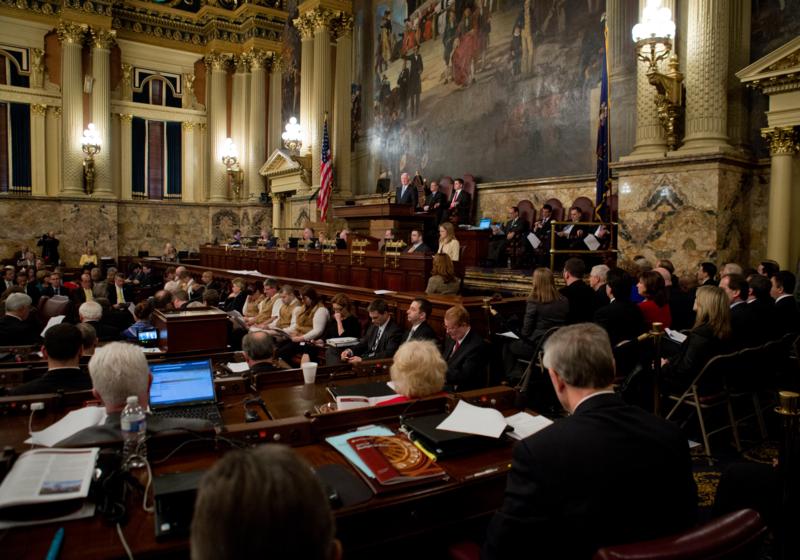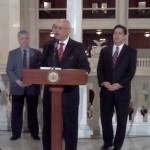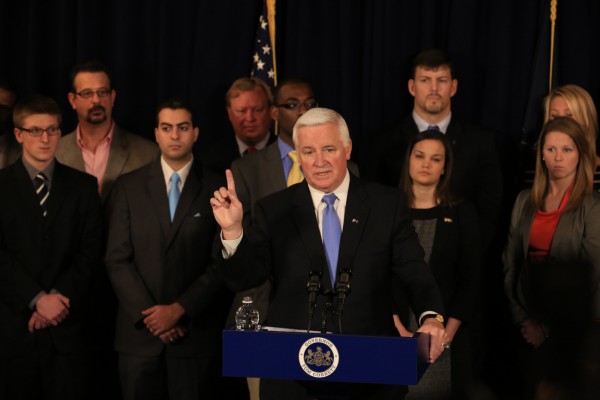Governor Tom Corbett has presented his general fund budget proposal for the 2013-2014 fiscal year that begins on July 1st. He calls it a balanced budget with no tax increases. Corbett’s plan calls for the state to spend $678.76 million more than it has in the current budget, an increase of 2.4%. In his budget address, the governor also laid out his plans for pension reform and transportation infrastructure.
Highlights of the budget include the first increase in basic education funding in two years. The 1.7% increase amounts to about $90 million. Additionally, the governor is proposing a block grant program to be funded by the state’s divestiture in the liquor business. That funding, which would total $1 billion over four years, could be earmarked for school safety, K-3 readiness and enhancing access to STEM programs (science, technology, engineering and mathematics), among other programs. The governor says there would be an initial $200 million available for the grants by the 2014-2015 school year.
Governor Corbett’s proposal also eliminates the Capital Stock & Franchise Tax on January 1, 2014, and calls for a reduction of the Corporate Net Income tax to 6.99% over ten years from 2015-2025. That CNI tax is currently 9.99%.
The budget plan also includes $14.7 million for three new State Police cadet classes.
On pension reform, the governor is proposing big changes for the two public pension funds that have been declared in a state of crisis. The State Employees Retirement System (SERS) and the Public School Employees Retirement System (PSERS) are both drastically underfunded and threaten to gobble up massive pieces of future state budgets. Among the changes proposed by Governor Corbett, new employees would be automatically enrolled in a 401(a) retirement plan where they will be required to contribute at least 6.25% of their salary (7.5% for PSERS). The governor says current employees would not see any changes to benefits already accrued and current retirees would see no changes at all in the benefits they are collecting. SERS is currently only 65.3% funded while PSERS is 69.1% funded.
On transportation funding, the governor is proposing removing a cap on the Oil Company Franchise Tax. Currently, distributors pay that tax based on the artificial cap of $1.25 per gallon, wholesale. Gas prices, of course, are well beyond that threshold, and the governor wants to “uncap” that price over a 5-year phase-in. Distributors would pay more in taxes under the plan, but to offset any potential attempts to pass along that increase to consumers, the governor also wants to lower the state tax on gasoline by a penny per gallon in 2013-14 and another cent in 2014-15. The current state gasoline tax is 12 cents per gallon.
Next up, the overall spending plan will be the subject of dozens of legislative budget hearings in the coming weeks. Then legislative leaders will carve out a final budget that will be sent to the floors of the House and Senate, probably in late June.













